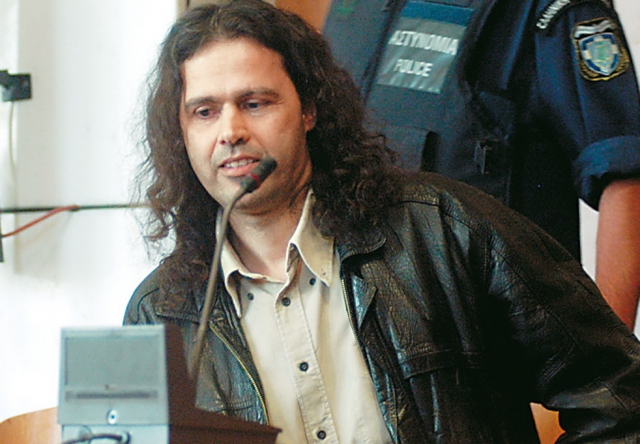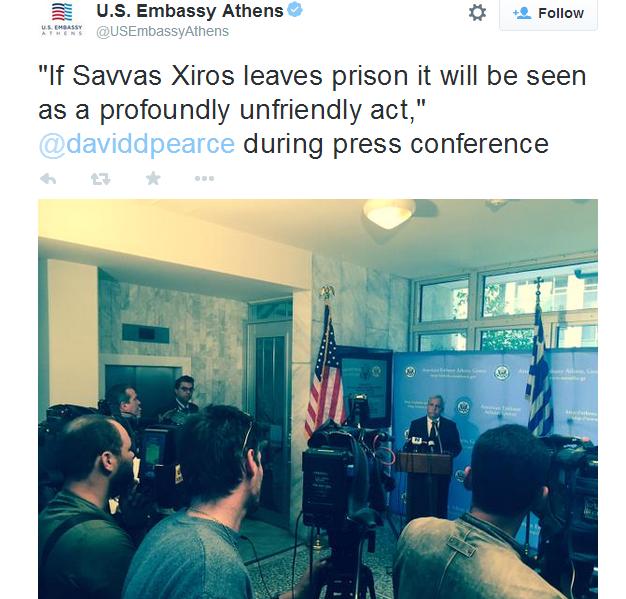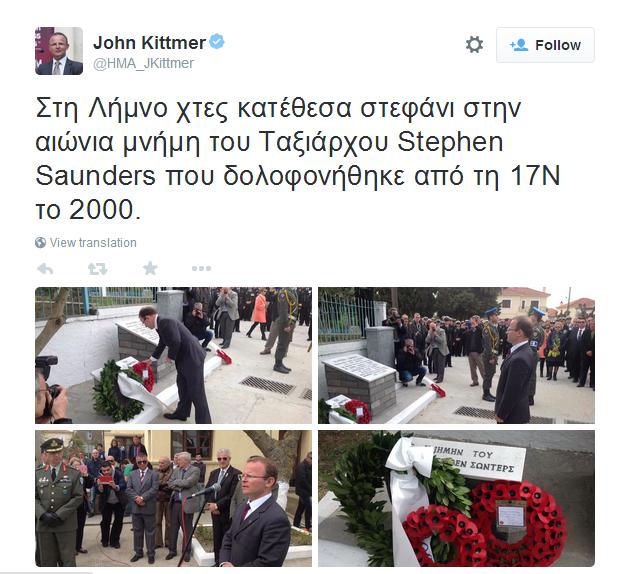Photo: kathimerini.gr
Last night's meeting between US Secretary of State and Greece’s Minister of Foreign Affairs in Washington was certainly one of the most difficult for Nikos Kotzias, as commented by the Greek media. During it, John Kerry expressed the US' firm position that those who had committed terrorist attacks should not be released in any way.
In joint statements of the two officials before the meeting, Kerry commented on the draft law of the Greek government, which provides for the release of prisoners for health reasons by saying, "We are particularly concerned that those who have committed acts of terrorism, who have been incarcerated, need to remain incarcerated." In response to this, his Greek counterpart Nikos Kotzias said, "We can be sure that the new law on prisoners will not provide for the release of any of those who have committed terrorist acts. It will only change the method of detention but will not release anyone."
The US resentment is due to the draft law of the Ministry of Justice on the closing down of prisons with a high degree of security, which allows prisoners with a high percentage of disability to serve the remainder of their sentence under house arrest. The opposition parties have also protested the legal text and accused the government of issuing it for the sole purpose of releasing from prison terrorist Savvas Xiros of the group 17 November.
The authorities captured and arrested him on 29 June 2002, after the explosive carried by him near the port of Piraeus exploded in his hands. The explosion injured his right hand, chest and eyes. Savvas Xiros was sentenced to 6 times life imprisonment and to 25 years in prison for participating in five murders and in robberies and explosions, and for involvement in a terrorist group. After the appeal, his life sentence was reduced to 5 times.
During the debates in the competent parliamentary commission, Minister of Justice Nikos Paraskevopoulos admitted that the particular law would affect Savvas Xiros with the words, "Three prisoners can benefit from it. Two of them have cancer, and one of them has recently died. There are now only two, Xiros being one of them. The law stipulates that in order for prisoners to serve the remainder of their sentence under house arrest they should be over 80% disabled. I have established that, according to the medical expertise, Savvas Xiros is already 98% disabled. This shows that he is no longer able to do anything."

The USA expressed concern about the likelihood of the terrorist being released a week ago too. Yesterday, when the Greek parliament voted the law, US Ambassador David Pearce convened a press conference and stated that the insistence by the Greek cabinet to adopt the law would be considered as an "unfriendly act" towards Washington on the part of Athens.
"Convicted terrorists and murderers should serve their full sentences in prison, not in the comfort of their own homes, surrounded by their friends, families and associates," said the Ambassador.

He made the statements in front of the plaque with the names of the members of the US diplomatic mission in Greece who had been victims of terrorist attacks. "The release from prison of these murderers dishonours the memory of those they have killed and violates the rights of the victims' families," added Pearce.
In his words, the US Embassy had sent a protest note to the Greek Minister of Justice as early as 2 April whereas US Secretary of State John Kerry last week had a telephone conversation with Prime Minister Alexis Tsipras on the same issue.
In conclusion, the Ambassador warned that the release of Savvas Xiros from prison would change the attitude of the United States to Greece, including with regard to the support in the critical negotiations of Athens with its creditors to resolve Greece’s financial problems.
The probability of terrorist Xiros being released provoked a reaction by British Ambassador to Greece John Kittmer too. Yesterday he announced through his Twitter profile that on Monday he had placed a wreath in memory of British Brigadier Stephen Saunders who was assassinated by 17 November. He was shot dead in his car on the central Athens Kifissias Avenue in 2000.

In addition, the British Ambassador posted the comment of the US embassy from yesterday’s press conference.
The Greek parliament passed the law last night despite the reactions and protests on the part of the opposition against the lack of quorum.